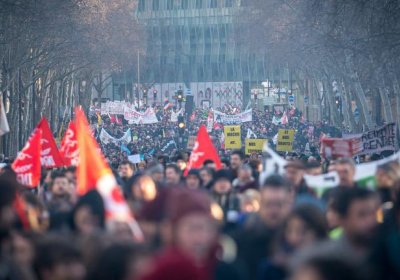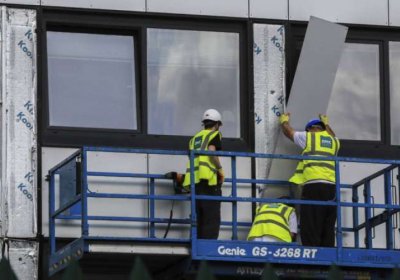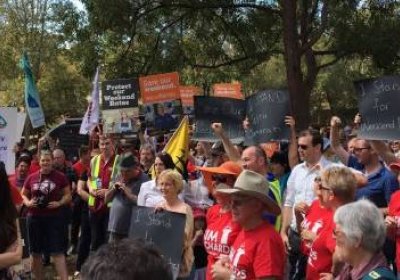Socialist Alliance strongly supports vaccination as a public health measure. Vaccines should be free and easily available.
trade unions
The movement against Emmanuel Macron's pension reforms is entering a new phase. Lisbeth Latham takes a look at this historic movement.
Humanity is currently faced with a number of deep and challenging crises: economic, social, political, over food – and over climate change, which is threatening the very existence of millions of people.
These crises have many of the same root causes, going to the core of our economic system. The economic and climate crises are both embedded parts of the capitalist economy.
Speculation and a privatised system of building inspection are the common elements in the evacuation of the Sydney apartment towers and the fires casued by flammable cladding, writes Sue Bolton.
The Malaysian Trade Union Congress (MTUC), several other trade unions and the Malaysian Socialist Party (PSM) have slammed as “humiliating” and “beggarly” the new Pakatan Harapan (Alliance of Hope) federal government's announcement that it would increase the country's minimum wage by just RM50 (A$17) a month to RM1050 ($350) from January 2019.
Unions are considering calling a mass workers' protest.
Social media has become integrated into workers’ daily lives yet there are few industrial agreements that remunerate them for the changes this has brought about in their working conditions, writes Geelong Trades Hall Council secretary Colin Vernon.
Tiziri Kandi is an officer with the hotel workers’ branch of the General Confederation of Labour (CGT) – a major confederation of French trade unions. Following the 111-day Clichy Holiday Inn strike in Paris, she spoke with Joe Hayns about the strike, outsourcing, and the limitations faced by railway workers in their struggle against President Emmanuel Macron’s attack on the state-owned railway operator, SNCF.
Mass mobilisations broke out in Argentina over the last two weeks of 2017 following the government’s attempt to cut pension benefits. Unions, political parties and student organisations took to the streets to protest the austerity measures and resist the battering of the police.
The crisis is deepening on Manus Island. The 600 men remaining at the former regional processing centre compound are being starved out, deprived of medical aid and having fences taken down around them as Green Left Weekly goes to print. Notices have been posted at the centre saying that if the men do not vacate, they will be removed by force.
- Page 1
- Next page











